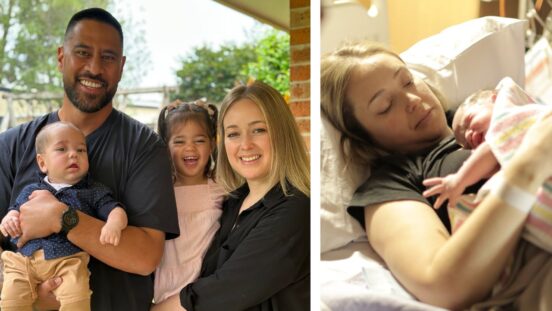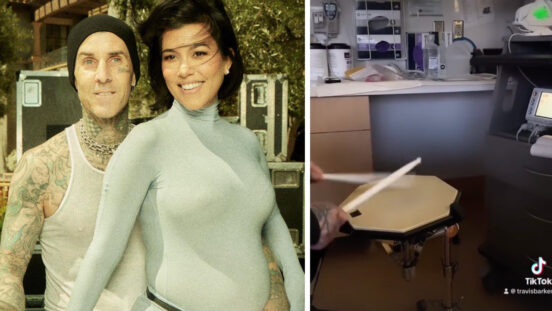Trying for a baby? Add these 10 foods to your shopping list now
Amazonia Ambassador, Zoe Dent, talks us through the wholefoods you should be stocking up on to boost fertility.
By Zoe Dent, Amazonia Ambassador.
When you consider the principle that ‘you are what you eat’, it makes sense that the health of your future bub is directly correlated to the food you consume both before and during pregnancy.
In fact, following a nutritious, balanced diet when trying to conceive can boost your fertility and lower the risk of birth defects like spina bifida. Plus, it’ll help you settle into a healthy routine you can maintain once the baby is on board.
These 10 nourishing foods are rich in all the vitamins and nutrients your body needs to naturally increase your chances of falling pregnant …

Zoe Dent is a Health Scientist and Nutritionist for global health brand Amazonia.
Green leafy vegetables
Green leafy vegetables like spinach, broccoli, bok choy and kale are high in folic acid, a B vitamin that’s crucial for forming healthy cells and may improve ovulation. These greens are also rich in magnesium, calcium and iron, which are especially crucial in times of growth. If you’re getting sick of salads, try juicing your greens or sneaking them into an omelette or spinach and feta and pie.
Oily fish
Oily fish like salmon and sardines are great sources of Vitamin D and DHA, necessary for your baby’s brain health. If you’re vegan or vegetarian, flaxseeds are also packed with Omega 3s. Try making homemade flaxseed crackers topped with hummus or avocado for a good dose of healthy fats.

The health of your future bub is directly correlated to the food you consume both before and during pregnancy.
Water
Your body needs to be well hydrated during this important time, so make sure you aim for at least 2L per day. Keep a reusable water bottle with you and mix it up by adding some cut fruit or a flavoured tea bag to help you drink more.
Pasture-Fed Butter
Vitamin D is a fat-soluble vitamin, meaning you need to consume a source of dietary fat with a Vitamin D rich food for your body to absorb this essential nutrient. By choosing a good-quality cultured pasture-fed butter, you’ll get your Vitamin D and fat source in one hit. Butter is also high in calcium and vitamin K2 which is critical for proper skeletal formation and genetic expression.
Collagen
Collagen is essential for growing tissues and supporting skin elasticity (especially when that belly starts to grow). Homemade bone broth is rich in many critical minerals important for overall health and fertility, such as calcium, magnesium and gelatin. If bone broth isn’t your thing, try researching an organic, non-synthetic marine collagen supplement you can incorporate into your diet.
Nuts & Seeds
Almonds and tahini are both great sources of dairy-free calcium, pumpkin seeds are especially high in magnesium, and walnuts and chia seeds are rich in Omega 3s. Pack a handful of mixed nuts and seeds in your handbag to snack on, sprinkle them on your salad for extra crunch, or spread some tahini on cinnamon roasted sweet potato for a delicious dinner side.
Probiotics
Probiotics are a must, in my opinion, to ensure your gut is full of all the good bacteria you’ll be passing onto your baby. In fact, the latest research shows that a baby’s microbiome is first colonized by mum’s bacteria, particularly during the trip through the birth canal. Make sure you choose an organic, non-synthetic, multi-strain supplement and, if possible, add some cultured vegetables, kefir or kombucha to your diet.
Wholefoods
Like your pregnancy diet, your pre-pregnancy diet should be focused around nutrient-dense wholefoods. This means cutting down on or eliminating as many processed foods as possible. Instead, concentrate on foods that are grown or raised naturally, without added ingredients such as hormones, antibiotics, pesticides, synthetics or preservatives.

Like your pregnancy diet, your pre-pregnancy diet should be focused around nutrient-dense wholefoods.
Protein
Try to include a source of protein in every meal. Throughout pregnancy, you’ll need an extra 60 grams a day to support the growth of your baby’s tissue and muscle. Eggs, lean beef and chicken are high in protein and iron, which is needed to help your cells get enough oxygen. There are also excellent plant-based protein sources, such as quinoa, lentils, beans and peas, which provide a good dose of iron and zinc. If you’re struggling to get enough protein each day, do some research to find a formulated pregnancy protein.
Fibre
Ensuring you have enough fibre in your diet can lower your risk of developing gestational diabetes. Good sources of fibre include unprocessed whole grains such as whole oats, quinoa, buckwheat and brown rice, as well as fruits and vegetables such as peas, corn, broccoli, peaches and jackfruit.




